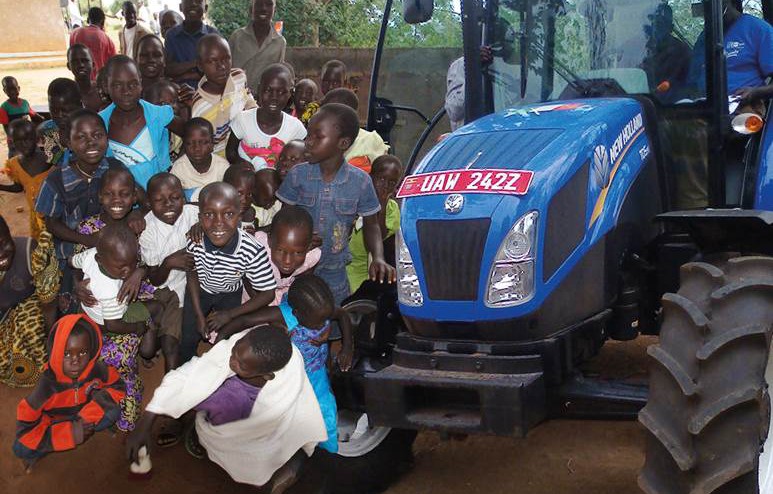
For more than 15 years Ugandan priest Emmanuel Maria Vura – more generally known as Father Natalino – has been working relentlessly at his mission: to reach out to the youths who served as child soldiers just a few years ago in a civil war that has caused so much bloodshed and devastation in Uganda for more than 30 years. The aim is to help them overcome their deeply traumatic past experiences and rebuild their lives in their villages in a constructive and peaceful manner, focusing on farming activities.
Over time, the priest’s mission – which continues to provide an alternative to the streets for many young people – has led to the creation of a working farm run as a cooperative and providing food and employment for a large number of people. The farm has put hundreds of hectares in the area under the plough and it also manages a rabbitry in the Moyo district, with the associated benefits for nutritional health and the social and economic life of the many villages in the Arua diocese.
This is the background to the 2010 launch of “Progetto Uganda” thanks to the support of FATA Assicurazioni in collaboration with AIA (Italian farmers association) and the municipal council of Rome. Progetto Uganda is a major initiative that, despite many difficulties and challenges, is gradually proceeding towards the creation of a complete rabbit production chain.
And this is where the major contribution of New Holland Agriculture comes in, with our recent donation of a tractor to speed up field work and increase the production and distribution of forage for rabbit feed. It will also make it possible to eliminate the need to purchase commercial rabbit feed, which had lately become extremely costly and was leading to significant losses and unproductive uses of resources.
The TD5.95, which forms part of a range of tractors that are particularly popular among traditional arable and livestock farmers because of their reliability and versatility, will allow the African farm to: grow forage on the spot with higher quality and productivity and in a more structured manner; supply the pellet mill donated by Fata Assicurazioni before Christmas; distribute food directly to the rabbits. This capital equipment could allow the Centre to reach sufficiently high livestock levels, in the short term, to be able to start selling to local markets and supermarkets in a gradual growth process that could eventually see the rabbitry shipping its products over the 500 kilometres that separate it from the Ugandan capital, Kampala. Even though the bulk of production is destined for sale, a portion of the rabbits will be reared for local consumption in order to boost nutritional levels among the local population.